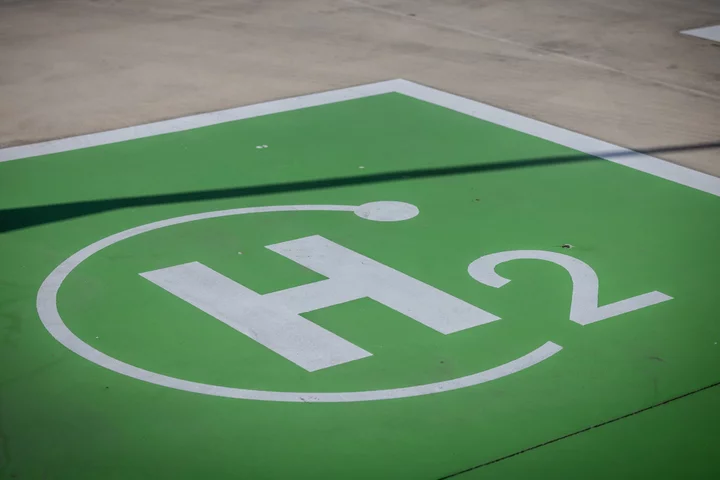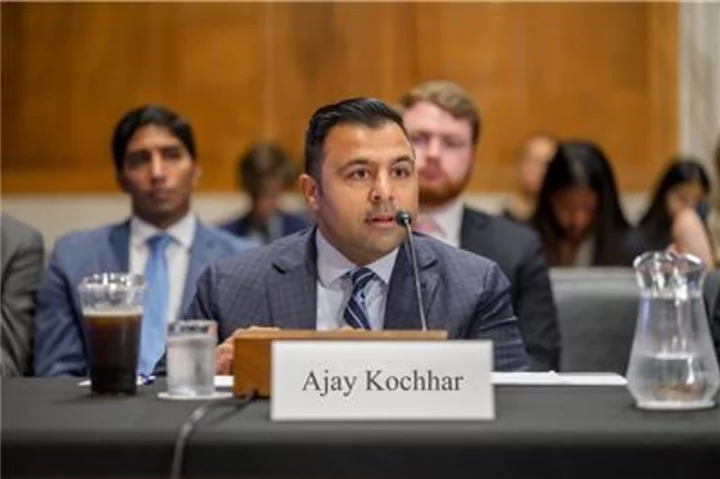The European Union is pushing the US for further remedies to address issues related to President Joe Biden’s massive green subsidies package, as the two partners seek to avoid a trade dispute.
“We are making some progress in regards to the Inflation Reduction Act,” Valdis Dombrovskis, the European Commission’s vice president for trade, said in an interview with Bloomberg in London. “But not all of our concerns are addressed.”
Biden’s $370 billion package initially drew a sharp rebuke from EU officials, though they have since changed their tone, emphasizing the strength of the bloc’s single market and the scale of its own financial incentives for business. The EU came forward last March with a set of proposals to facilitate the support of key clean technologies, and it started talks to address some of the discriminatory elements of the US plan.
Brussels and Washington are discussing a critical raw-materials deal that would allow for European manufacturers of batteries for e-vehicles to benefit from some of the tax credits. The US law offers tax credits and other incentives for the production of electric vehicles, renewable energy, sustainable aviation fuel and hydrogen.
But Dombrovskis said that issues remain on renewable energies and local assembly requirements to qualify for electrical vehicles subsidies. The bloc is also concerned about the support provided for electrical charging infrastructures and “Buy America” provisions in infrastructure projects where European firms risk being excluded.
The EU is not considering launching a case against the US at the World Trade Organization as “we have chosen this path of engagement with the US,” Dombrovskis said. “We are engaged in a constructive dialog and we hope that we’ll be able to find satisfactory solutions.”
Discussions however have been progressing slowly on some fronts while the US elections planned for next year could make it more difficult to obtain further concessions from Biden, who promised voters he would bring back jobs in some of the sectors supported by his stimulus plan. A breakdown in the transatlantic talks could hamper their joint efforts in supporting Ukraine or addressing China’s hostile economic practices.
Still, Dombrovskis hoped that the US would be able to act in the coming months in spite of campaign mode.
“We all have our electoral calendars also in the EU, having elections approaching more or less in a year,” Dombrovskis said. “Being a union of 27 democracies, there’s always an election somewhere.”
--With assistance from Bryce Baschuk.









